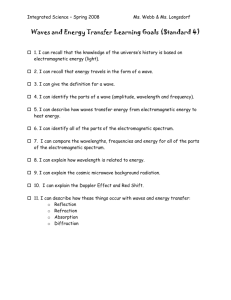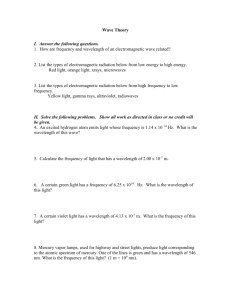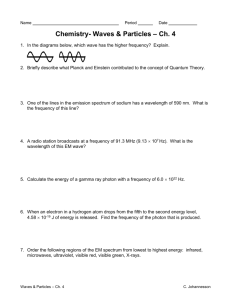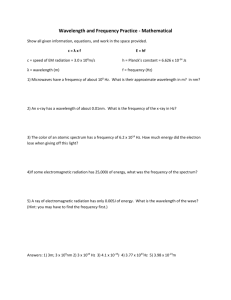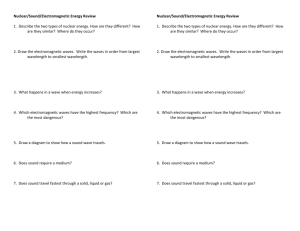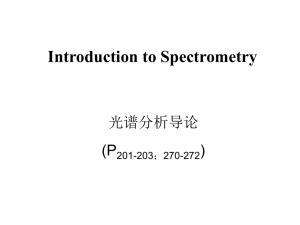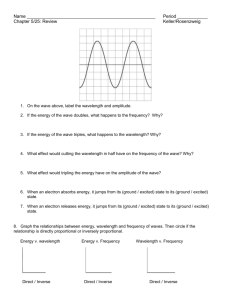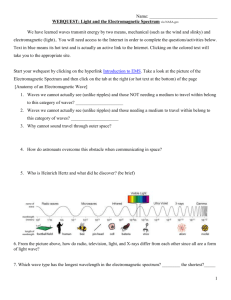PHASE 2: IDENTIFY CORE CONCEPTS & CONNECTIONS
advertisement
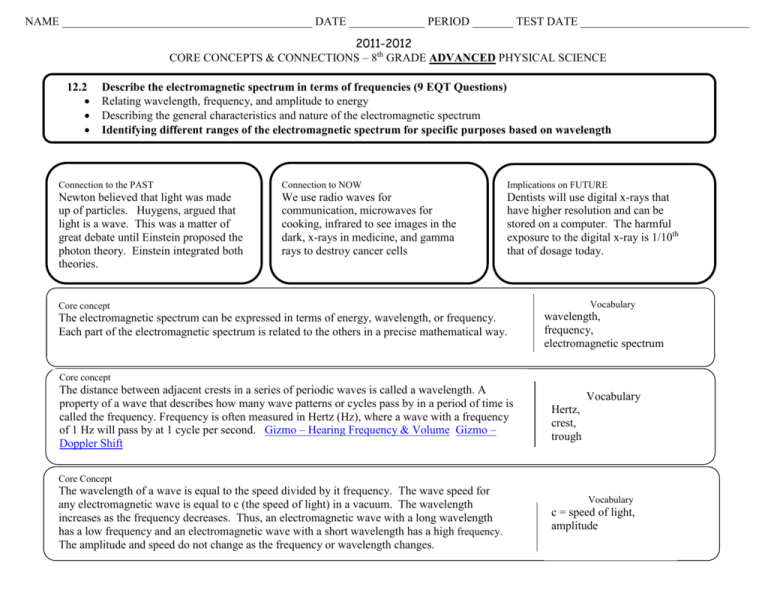
NAME ___________________________________________ DATE _____________ PERIOD _______ TEST DATE _____________________________ 2011-2012 CORE CONCEPTS & CONNECTIONS – 8th GRADE ADVANCED PHYSICAL SCIENCE 12.2 Describe the electromagnetic spectrum in terms of frequencies (9 EQT Questions) Relating wavelength, frequency, and amplitude to energy Describing the general characteristics and nature of the electromagnetic spectrum Identifying different ranges of the electromagnetic spectrum for specific purposes based on wavelength Connection to the PAST Connection to NOW Implications on FUTURE Newton believed that light was made up of particles. Huygens, argued that light is a wave. This was a matter of great debate until Einstein proposed the photon theory. Einstein integrated both theories. We use radio waves for communication, microwaves for cooking, infrared to see images in the dark, x-rays in medicine, and gamma rays to destroy cancer cells Dentists will use digital x-rays that have higher resolution and can be stored on a computer. The harmful exposure to the digital x-ray is 1/10th that of dosage today. Vocabulary Core concept The electromagnetic spectrum can be expressed in terms of energy, wavelength, or frequency. Each part of the electromagnetic spectrum is related to the others in a precise mathematical way. wavelength, frequency, electromagnetic spectrum Core concept The distance between adjacent crests in a series of periodic waves is called a wavelength. A property of a wave that describes how many wave patterns or cycles pass by in a period of time is called the frequency. Frequency is often measured in Hertz (Hz), where a wave with a frequency of 1 Hz will pass by at 1 cycle per second. Gizmo – Hearing Frequency & Volume Gizmo – Doppler Shift Vocabulary Hertz, crest, trough Core Concept The wavelength of a wave is equal to the speed divided by it frequency. The wave speed for any electromagnetic wave is equal to c (the speed of light) in a vacuum. The wavelength increases as the frequency decreases. Thus, an electromagnetic wave with a long wavelength has a low frequency and an electromagnetic wave with a short wavelength has a high frequency. The amplitude and speed do not change as the frequency or wavelength changes. Vocabulary c = speed of light, amplitude
